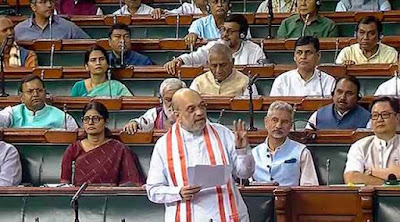- Allowing for video conferencing during trials: The bill allows
for the use of video conferencing during trials, which could help to
reduce the backlog of cases and make the criminal justice system more
efficient.
- Making handcuffing mandatory for certain offenses: The bill
makes handcuffing mandatory for certain offenses, such as murder, rape,
and counterfeit currency. This is aimed at preventing accused persons from
escaping or harming witnesses.
- Introducing community service as a new form of punishment: The
bill introduces community service as a new form of punishment for certain
offenses. This could help to reduce the burden on prisons and give
offenders the opportunity to make amends for their crimes.
- Making videography of seizures mandatory: The bill makes
videography of seizures mandatory, which could help to reduce corruption
and ensure that evidence is properly handled.
- Allowing for the trial of proclaimed offenders in absentia: The
bill allows for the trial of proclaimed offenders in absentia. This could
help to bring criminals to justice even if they have absconded.
The Bharatiya Nagarik
Suraksha Sanhita Bill, 2023 is currently being reviewed by a parliamentary
standing committee. It is expected to be debated and voted on in Parliament in
the coming months.
In addition to the above
changes, the bill also makes a number of other changes to the CrPC, such as
updating the language of the code to make it more gender-neutral and inclusive.
The bill also aims to simplify the code and make it more accessible to ordinary
citizens.
The new CrPC bill has
been welcomed by some legal experts, who argue that it is a much-needed reform
of the outdated code. However, others have criticized the bill, arguing that it
is too harsh and that some of the new provisions could be misused.
Imprisonment for sexual intercourse on false
promise of marriage: The bill proposes to make sexual intercourse on false
promise of marriage a punishable offense, with a maximum penalty of 10 years in
prison.
Increased punishment for rape and murder: The
bill proposes to increase the maximum punishment for rape and murder to life
imprisonment or death.
Reduced number of adjournments in trials: The
bill proposes to reduce the number of adjournments that can be granted in
trials.
Easier compensation for victims: The bill
proposes to make it easier for victims of crime to get compensation.
The
bill is still under consideration, and it is possible that some of the proposed
amendments may be changed or removed before the bill is passed into law.

